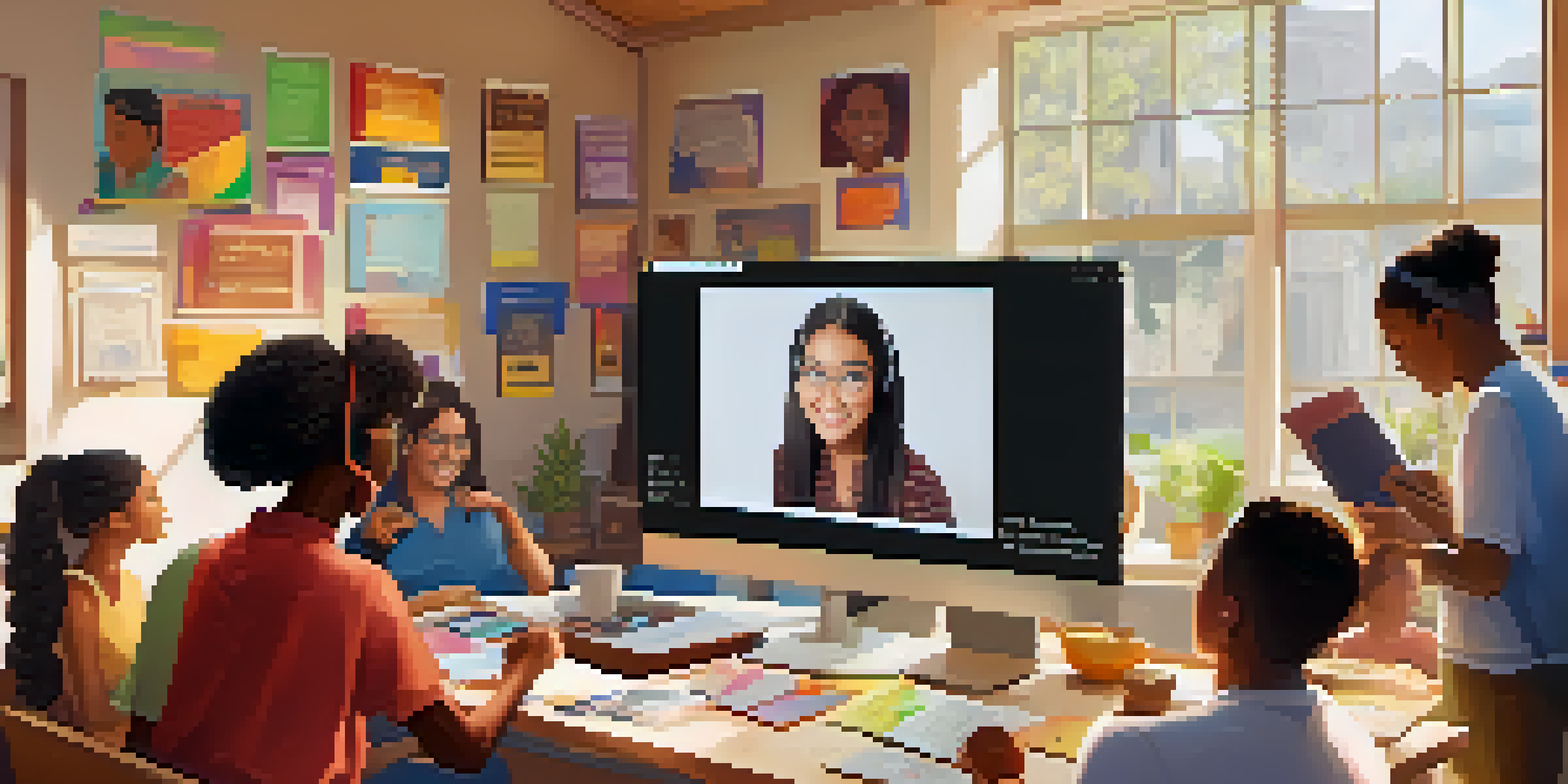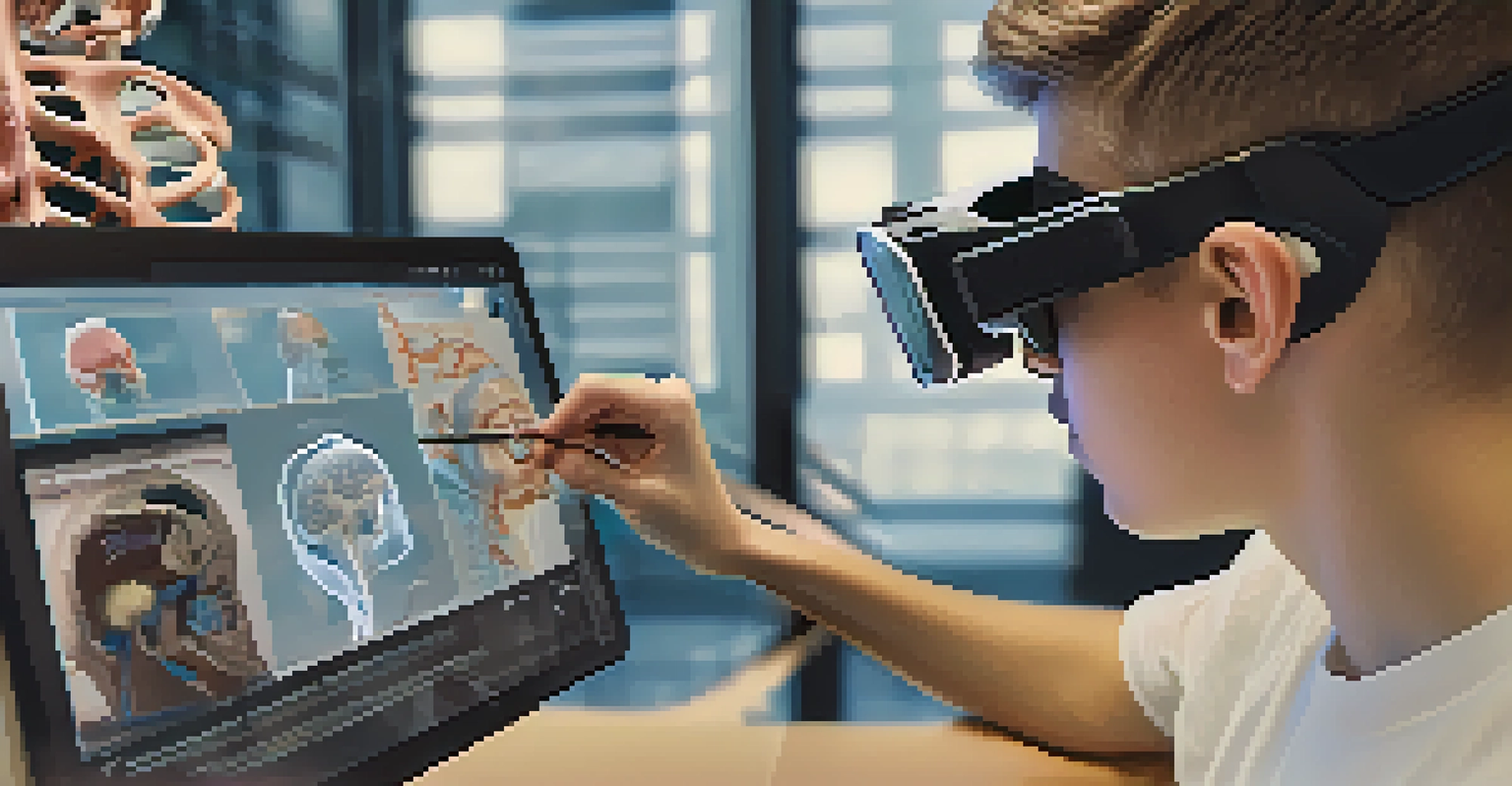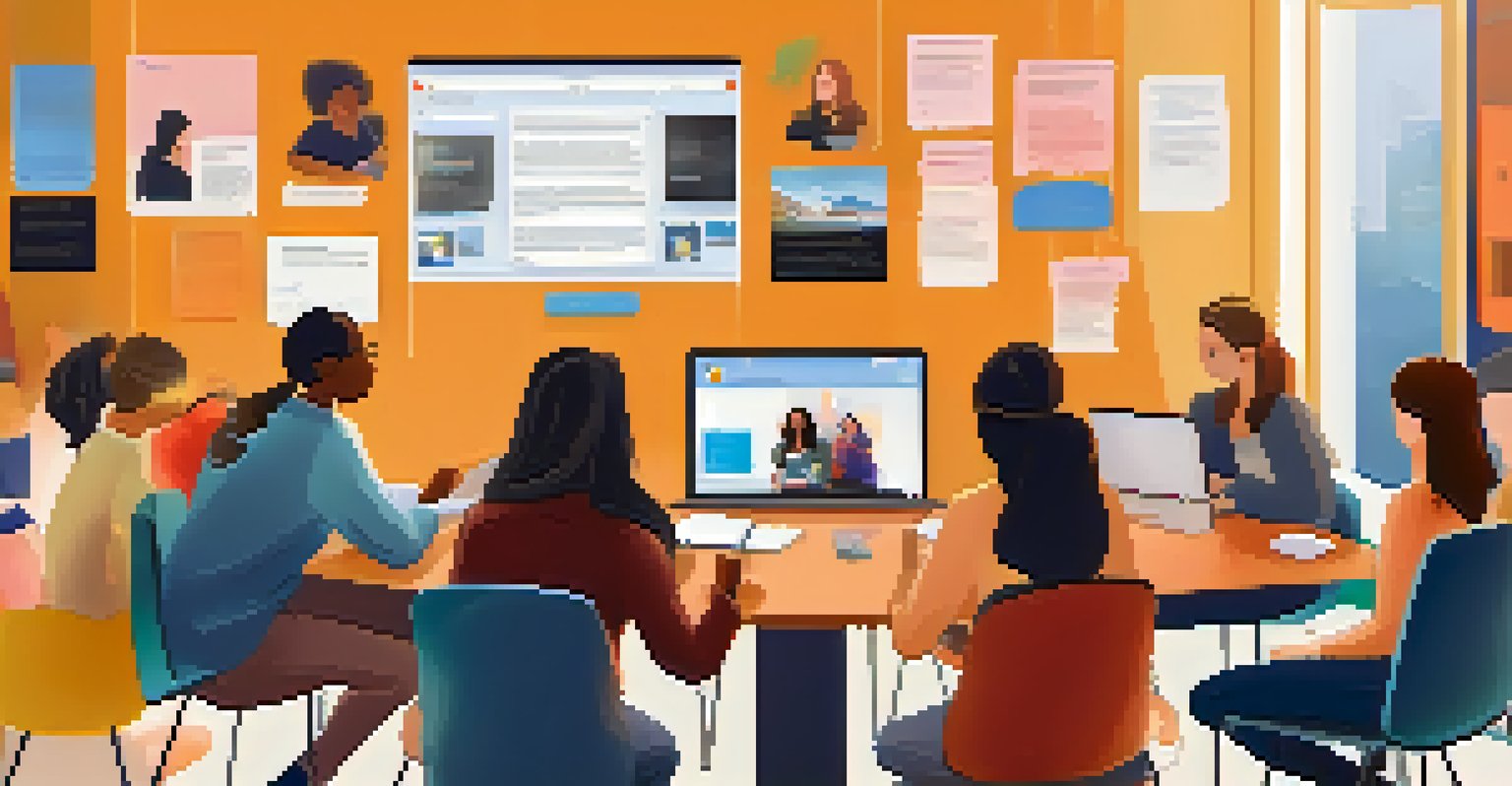The Future of Online Learning in Texas Higher Education

The Rise of Online Learning in Texas Colleges
Over the past few years, online learning has surged in popularity among Texas colleges, driven by both demand and necessity. Students appreciate the flexibility that online courses offer, allowing them to juggle studies with work and personal commitments. This shift is not merely a trend; it's a transformative movement reshaping how education is delivered across the state.
The beautiful thing about learning is that no one can take it away from you.
As institutions adapt to this new landscape, they’re investing in technology and resources to enhance the online learning experience. Many universities have developed robust online platforms that cater to diverse learning styles and needs. This means that whether you're a visual learner or prefer hands-on experiences, there's likely an online course tailored for you.
Moreover, the accessibility of online learning opens doors for students who may have faced barriers in traditional settings. Whether it's geographic distance or personal circumstances, online options make education available to a broader audience. This inclusivity is paving the way for a more educated and skilled workforce in Texas.
Innovative Technologies Shaping Online Education
Technology is at the heart of online learning's evolution. From interactive platforms to virtual reality experiences, the tools available are making education more engaging than ever. For instance, some Texas universities are experimenting with augmented reality to simulate real-world scenarios in fields like healthcare and engineering.

Artificial intelligence (AI) is also playing a significant role, personalizing the learning journey for each student. Imagine having a dedicated AI tutor that adapts to your pace and learning style, providing resources and support tailored just for you. This kind of innovation not only enhances understanding but also keeps students motivated.
Growth of Online Learning in Texas
Online learning is transforming education in Texas, offering flexibility and accessibility for students balancing studies with other commitments.
Furthermore, the integration of collaborative tools allows students to connect with peers and instructors in real-time, creating a sense of community despite the physical distance. Virtual study groups and interactive discussion forums foster collaboration and engagement, making the online learning experience feel less isolating.
Challenges Faced by Online Learners
While online learning presents many advantages, it also comes with its share of challenges. One significant hurdle is the lack of face-to-face interaction, which can make it difficult for some students to feel connected. The absence of in-person classes may lead to feelings of isolation or disengagement, especially for those who thrive in social environments.
Education is the most powerful weapon which you can use to change the world.
Additionally, not all students have equal access to technology or a stable internet connection, which can be a significant barrier. This digital divide raises important questions about equity in education and highlights the need for institutions to provide resources and support to those in need.
Moreover, the self-discipline required for online learning can be daunting. Without the structured environment of a traditional classroom, some students may struggle to stay motivated and on track. Developing effective time management skills becomes crucial for success in this flexible learning framework.
The Role of Faculty in Online Learning
Faculty play a pivotal role in the success of online learning programs. Their ability to adapt teaching methods to suit an online environment is essential for creating an engaging experience. In Texas, many educators are undergoing professional development to enhance their online teaching skills, ensuring they can effectively connect with students.
Instructors are not just lecturers; they are mentors and facilitators who guide students through their learning journeys. By actively engaging with students through discussion boards and video conferences, faculty can foster a sense of belonging and support, crucial elements for online learning success.
Tech Innovations Enhance Education
Innovative technologies like AI and interactive platforms are making online education more engaging and personalized for learners.
Moreover, feedback from educators helps institutions refine their online programs and address challenges as they arise. By collaborating and sharing best practices, faculty members contribute to the continuous improvement of online education in Texas, ensuring it meets the evolving needs of students.
Interactive Learning Experiences in Online Education
Interactive learning experiences are becoming a hallmark of online education, enhancing engagement and understanding. Gone are the days of passive video lectures; now students can participate in virtual labs, simulations, and gamified learning modules. These interactive elements transform learning into a dynamic experience that keeps students invested.
For example, some Texas institutions are utilizing online platforms that incorporate quizzes, polls, and breakout rooms to encourage active participation. This level of interactivity not only aids comprehension but also helps students retain information more effectively. Learning becomes an active process rather than a passive one.
Additionally, these interactive experiences allow for immediate feedback, which is crucial for student growth. By receiving real-time assessments and guidance, learners can adjust their strategies and deepen their understanding, making the online learning journey more impactful.
The Impact of Online Learning on Workforce Development
Online learning is not just reshaping education; it's also playing a significant role in workforce development in Texas. As industries evolve and new technologies emerge, the demand for skilled professionals continues to grow. Online education offers flexible pathways for individuals to upskill or reskill, catering to the needs of the modern job market.
Many community colleges and universities are partnering with local businesses to create tailored online programs that address specific workforce needs. This collaboration ensures that students are learning relevant skills that are directly applicable in their careers. It’s a win-win situation that benefits both the student and the employer.
Workforce Development Opportunities
Online education is crucial for workforce development, enabling individuals to upskill and meet the demands of a changing job market.
Furthermore, the ability to learn remotely opens opportunities for individuals who may have been unable to pursue traditional education due to work or family obligations. By providing accessible learning options, Texas is fostering a more skilled and adaptable workforce, ready to meet the challenges of the future.
The Future Outlook for Online Learning in Texas
Looking ahead, the future of online learning in Texas appears bright and full of potential. As technology continues to advance, we can expect even more innovative teaching methods and learning experiences. The focus will likely shift towards creating hybrid models that blend online and in-person instruction, offering the best of both worlds.
Additionally, ongoing research and feedback will drive improvements in online education, ensuring it remains relevant and effective. Institutions will continue to explore ways to enhance accessibility and engagement, making education a priority for all Texans, regardless of their circumstances.

Ultimately, the future of online learning in Texas higher education hinges on collaboration among educators, institutions, and the workforce. By working together, they can create a system that not only meets the needs of today but also prepares students for the challenges of tomorrow.